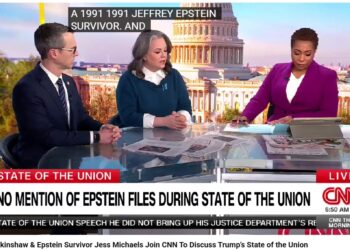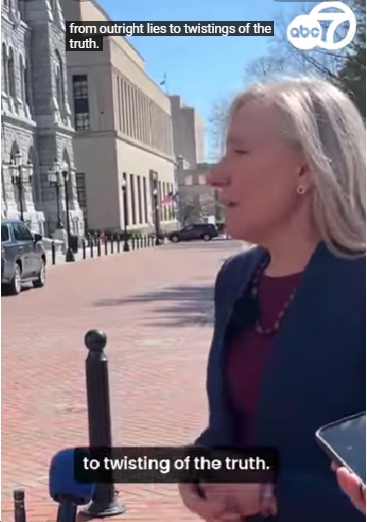Reading the latest Facebook post (see below) by former VA Lt. Governor Bill Bolling, a Trump-voting Republican, got me to musing about why Bolling is able/willing to speak up in ways that contradict the party’s Dear Leader, while the Youngkins of the world can’t/won’t do that. And the answer, I think, is simple: Bolling is no longer in the political “arena,” with no future in Republican Party politics, so he has nothing to lose in that regard by speaking up. Similarly with FORMER Reps. Denver Riggleman (R-VA05) and Barbara Comstock (R-VA10). In sharp contrast, can you think of a single *elected* Virginia Republican, or Virginia Republican *wanting* to get elected, who’s spoken out against literally ANY of Trump’s policies? Uhhh….
Anyway, with that, here’s Bolling’s new post, which argues that tariffs “fuel inflation,” could cost American consumers “between $4,000 and $8,000 per household, annually” and “are a hidden tax increase on American families.” Which is why, for years, conservative/anti-tax groups would *rail* against any proposal, or even hint, of imposing tariffs. But now that Trump’s doing it? Mostly “crickets” from those folks. Again – gee, wonder why!
As you probably know by now, I’m not a big fan of President Trump’s tariff policy. However, there are two upsides to tariffs.
The first is shown in the graph below. Tariffs can raise a lot of money for the federal government.
It is estimated that the tariffs President Trump has imposed may generate $200-$300 billion per year in federal revenue, perhaps more.
The other potential upside of tariffs is that they could cause some U.S. companies that are currently manufacturing products overseas to move that production to the U.S. However, that usually takes years to occur.
Of course, the downside of tariffs is that they inevitably result in “tariff wars” between the U.S. and other countries, which can make life difficult for U.S. businesses that are large exporters.
And ultimately, the financial cost of tariffs, while generating a huge windfall for the government, are passed on to American consumers in the form of higher prices. Tariffs fuel inflation!
In fact, some economists project the cost of Trump’s tariffs to American consumers to be between $4,000 and $8,000 per household, annually.
In other words, tariffs are a hidden tax increase on American families.
It will be interesting to see the ultimate impact of Trumponomics, but we may not know the final impact for many months or even several years.






![Video: Speaking at Democratic AG’s Conference, Jay Jones Says Trump “probably doesn’t like the fact that I’m sitting in this seat, but here I am ready to defend [against] anything that he’s trying to do.”](https://bluevirginia.us/wp-content/uploads/2026/02/jonessanfran.jpg)











